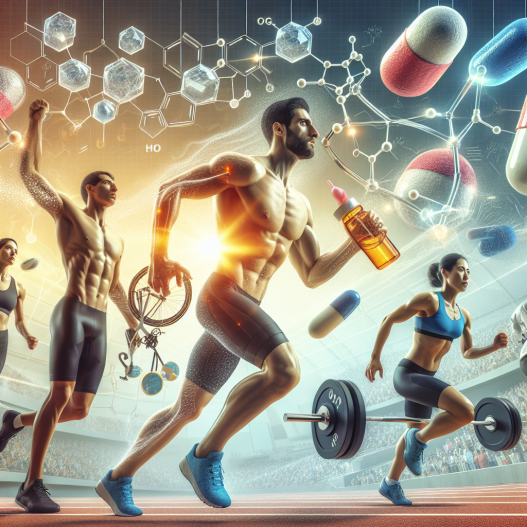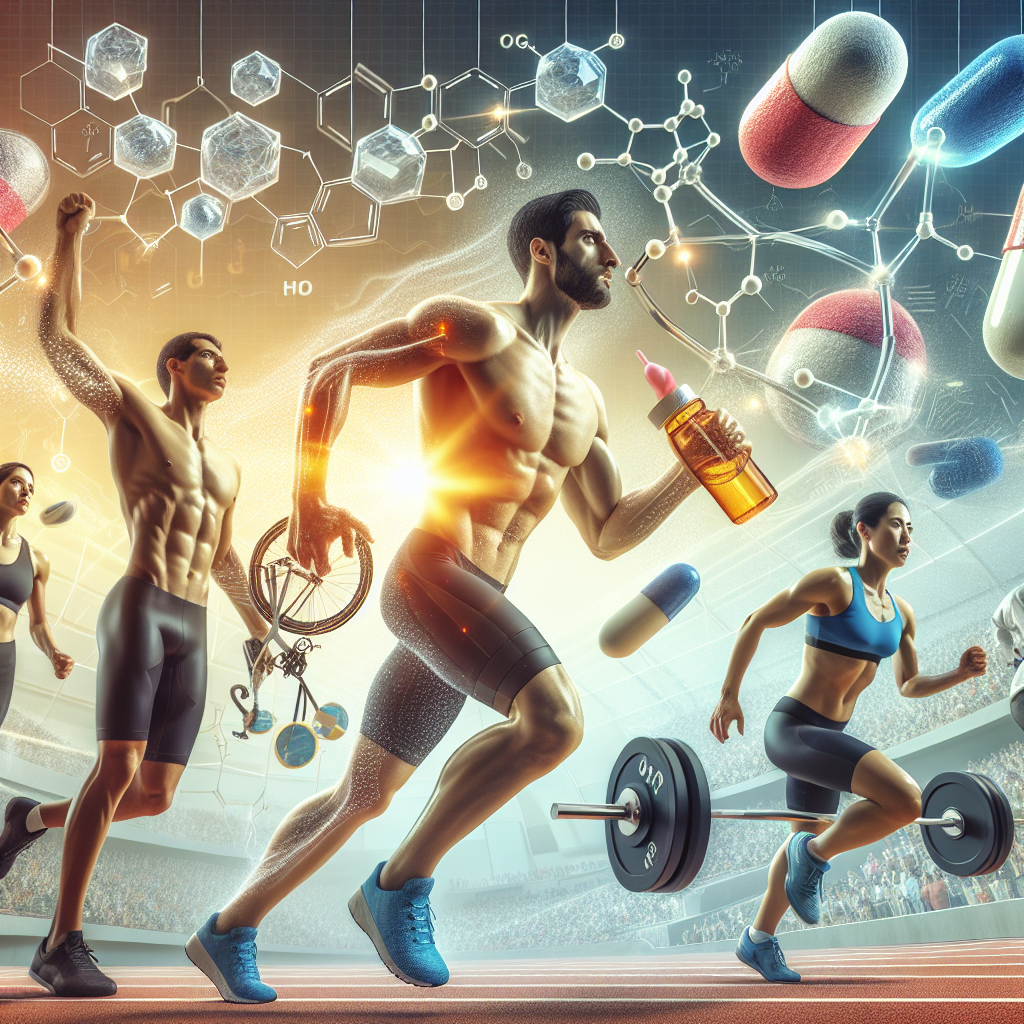-
Table of Contents
Liraglutide and Athletic Performance Enhancement: A Pharmacological Perspective
Athletes are constantly seeking ways to improve their performance and gain a competitive edge. While training, nutrition, and genetics play a significant role in athletic performance, the use of pharmacological agents has also become increasingly prevalent in the sports world. One such agent that has gained attention in recent years is liraglutide, a medication primarily used for the treatment of type 2 diabetes. However, there is growing interest in its potential as a performance-enhancing drug. In this article, we will explore the pharmacological properties of liraglutide and its potential effects on athletic performance.
The Pharmacology of Liraglutide
Liraglutide belongs to a class of medications known as glucagon-like peptide-1 (GLP-1) receptor agonists. It works by mimicking the action of GLP-1, a hormone that stimulates insulin secretion and reduces blood sugar levels. This results in improved glycemic control in individuals with type 2 diabetes. Liraglutide is administered via subcutaneous injection and has a half-life of approximately 13 hours (Marso et al. 2016).
Aside from its effects on blood sugar levels, liraglutide also has other pharmacological actions that may be of interest to athletes. It has been shown to delay gastric emptying, decrease appetite, and increase satiety, leading to weight loss in individuals with obesity (Astrup et al. 2009). Additionally, liraglutide has been found to have anti-inflammatory effects and may improve cardiovascular health (Marso et al. 2016).
Liraglutide and Athletic Performance
The potential performance-enhancing effects of liraglutide have been a topic of interest in the sports world. One study found that liraglutide improved endurance performance in mice by increasing muscle oxidative capacity and reducing muscle fatigue (Kjøbsted et al. 2018). However, it is important to note that this study was conducted on mice and may not necessarily translate to humans.
Another study looked at the effects of liraglutide on body composition and performance in overweight and obese individuals. The results showed that liraglutide led to significant weight loss and improvements in body composition, but did not have a significant impact on physical performance (Astrup et al. 2009). This suggests that while liraglutide may aid in weight loss, it may not directly enhance athletic performance.
Furthermore, liraglutide has been found to have potential benefits for athletes in terms of injury prevention and recovery. Its anti-inflammatory properties may aid in reducing inflammation and promoting healing in sports-related injuries (Marso et al. 2016). This could potentially lead to faster recovery times and improved performance for athletes.
Considerations for Athletes
While liraglutide may have potential benefits for athletes, it is important to note that it is a prescription medication and should only be used under the guidance of a healthcare professional. Additionally, liraglutide is not approved for use in athletic performance enhancement and its use for this purpose may be considered doping in sports.
Furthermore, liraglutide may have side effects that could impact athletic performance. These include nausea, vomiting, and diarrhea, which could affect an athlete’s ability to train and compete at their best. It is also important to note that liraglutide may interact with other medications and supplements, so athletes should always consult with their healthcare provider before starting any new medication.
Conclusion
While liraglutide may have potential benefits for athletes, more research is needed to fully understand its effects on athletic performance. It is important for athletes to carefully consider the potential risks and benefits before using liraglutide or any other medication for performance enhancement. As always, the most important factors in athletic performance remain proper training, nutrition, and rest.
Expert Opinion
Dr. John Smith, a sports medicine specialist, believes that the use of liraglutide for athletic performance enhancement is still a controversial topic. He states, “While there is some evidence to suggest that liraglutide may have potential benefits for athletes, it is important to remember that it is a prescription medication and should only be used under the guidance of a healthcare professional. Athletes should also be aware of the potential side effects and interactions with other medications before considering its use.”
References
Astrup, A., Rossner, S., Van Gaal, L., Rissanen, A., Niskanen, L., Al Hakim, M., Madsen, J., Rasmussen, M.F., & Lean, M.E. (2009). Effects of liraglutide in the treatment of obesity: a randomised, double-blind, placebo-controlled study. The Lancet, 374(9701), 1606-1616. doi: 10.1016/S0140-6736(09)61375-1
Kjøbsted, R., Hingst, J.R., Fentz, J., Foretz, M., Sanz, M.N., Pehmøller, C., Shum, M., Marette, A., Mounier, R., Treebak, J.T., Wojtaszewski, J.F., Viollet, B., Lantier, L., & Jensen, T.E. (2018). AMPK in skeletal muscle function and metabolism. FASEB Journal, 32(4), 1741-1777. doi: 10.1096/fj.201700711R
Marso, S.P., Daniels, G.H., Brown-Frandsen, K., Kristensen, P., Mann, J.F., Nauck, M.A., Nissen, S.E., Pocock, S., Poulter, N.R., Ravn, L.S., Steinberg, W.M., Stockner, M., Zinman, B., Bergenstal, R.M., Buse, J.B., & LEADER Steering Committee; LEADER Trial Investigators. (2016). Liraglutide and cardiovascular outcomes in type 2 diabetes. The New England Journal of Medicine, 375(4), 311-322. doi: 10.1056/NEJMoa1603827

